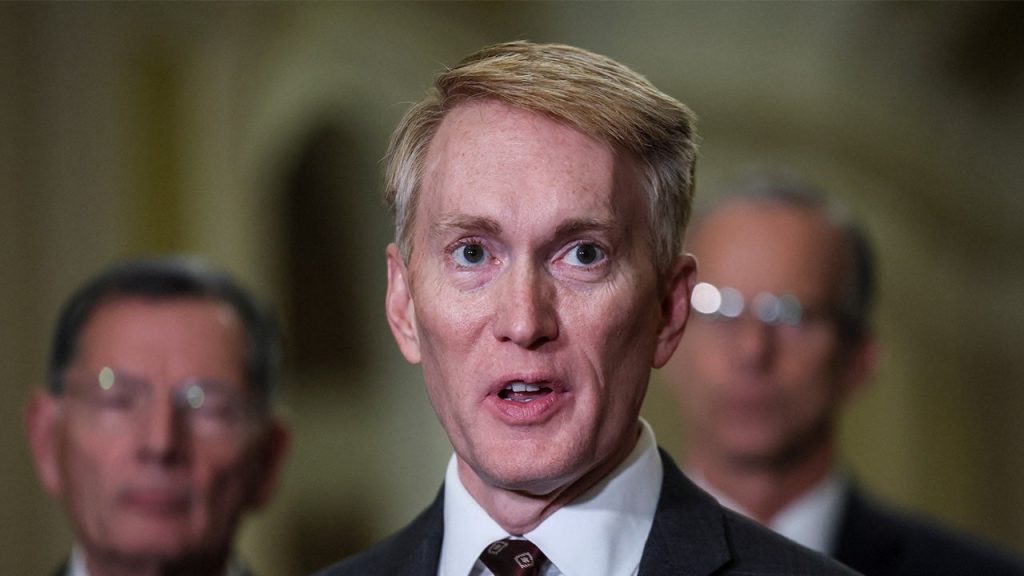Senator James Lankford’s legislative initiative aims to tackle the pervasive issue of government waste, particularly focusing on fraud related to COVID-19 pandemic relief programs. This initiative, introduced ahead of President-elect Donald Trump’s next term, reflects a broader movement towards government efficiency championed by Trump and supported by figures like Elon Musk and Vivek Ramaswamy. Lankford’s legislative package consists of two key bills designed to address specific vulnerabilities exploited during the pandemic. The first bill empowers states to halt unemployment payments suspected of fraud, removing a bureaucratic hurdle that mandates the resumption of payments within two weeks of an appeal, even in cases of potential fraud. This measure aims to swiftly curb fraudulent unemployment claims, preventing further losses to taxpayers and ensuring the integrity of the unemployment insurance system. The second bill extends the statute of limitations for prosecuting fraud related to all pandemic-era relief programs. This extension provides investigators and law enforcement agencies with the necessary time to thoroughly investigate complex fraud cases and hold perpetrators accountable. Current limitations pose a significant obstacle to pursuing justice, effectively allowing fraudsters to evade prosecution due to time constraints. The significance of extending the statute of limitations is underscored by the complexities of investigating financial crimes, especially those involving large-scale government programs. Investigating pandemic relief fraud requires meticulous examination of financial records, tracing funds across various accounts and jurisdictions, and gathering evidence to build strong legal cases. The existing statute of limitations often proves insufficient for such in-depth investigations, allowing perpetrators to escape accountability. By extending the statute of limitations, Lankford’s bill provides law enforcement with the necessary time to build robust cases and recover misappropriated funds.
Lankford’s legislative efforts have garnered notable support, including endorsement from Government Accountability Office Comptroller Eugene Dodaro. Dodaro emphasizes the importance of this legislation in empowering oversight agencies and law enforcement to effectively pursue fraud investigations and ensure accountability for the misuse of taxpayer dollars. This support reinforces the bipartisan nature of the concern regarding government waste and the need for effective measures to combat fraud.
The legislative push against pandemic-related fraud aligns with a broader initiative launched by President-elect Trump, known as the Department of Government Efficiency (DOGE). This advisory board, initially spearheaded by Elon Musk and Vivek Ramaswamy, focuses on eliminating government waste, streamlining bureaucratic processes, and reducing unnecessary expenditures. The DOGE initiative reflects a growing recognition of the need for greater efficiency and accountability in government operations.
Lankford’s bills and the DOGE initiative demonstrate a commitment to addressing government waste and protecting taxpayer funds. These efforts aim to ensure that government programs are administered effectively, preventing fraud and holding those responsible for misappropriation accountable. The focus on pandemic-related fraud highlights the urgency of addressing vulnerabilities exposed during the crisis and protecting the integrity of future relief efforts.
The legislative package and the DOGE initiative represent crucial steps towards a more efficient and accountable government. They aim to address the pervasive problem of government waste, particularly in the context of pandemic relief programs, and protect taxpayer dollars from fraud and misuse. By streamlining processes, eliminating unnecessary regulations, and strengthening oversight mechanisms, these initiatives seek to create a more responsible and effective government.
Furthermore, these efforts reflect a growing bipartisan consensus on the need for greater government efficiency. While differing approaches may exist, the shared goal of reducing waste and improving accountability transcends partisan divides. This bipartisan cooperation is essential for achieving meaningful reforms and ensuring the long-term health of government finances. By working together, lawmakers can implement effective solutions that benefit all Americans.

